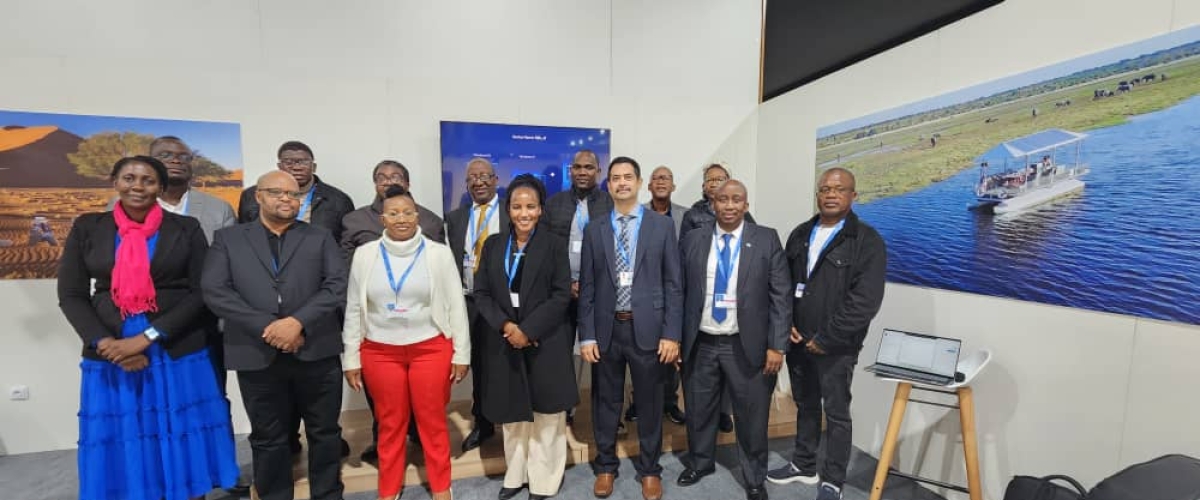
The event opened with a warm welcome from Prof. Patricia Mogomotsi, Deputy Permanent Secretary, MoET, who reflected on Botswana’s experiences with climate change across its agriculture, wildlife, and tourism sectors. She intimated that before discovering diamonds, Botswana was fully dependent on agriculture. She mentioned that Botswana has not been spared from climate change and continues to grapple with prolonged droughts but has developed innovative CSA approaches to cope.
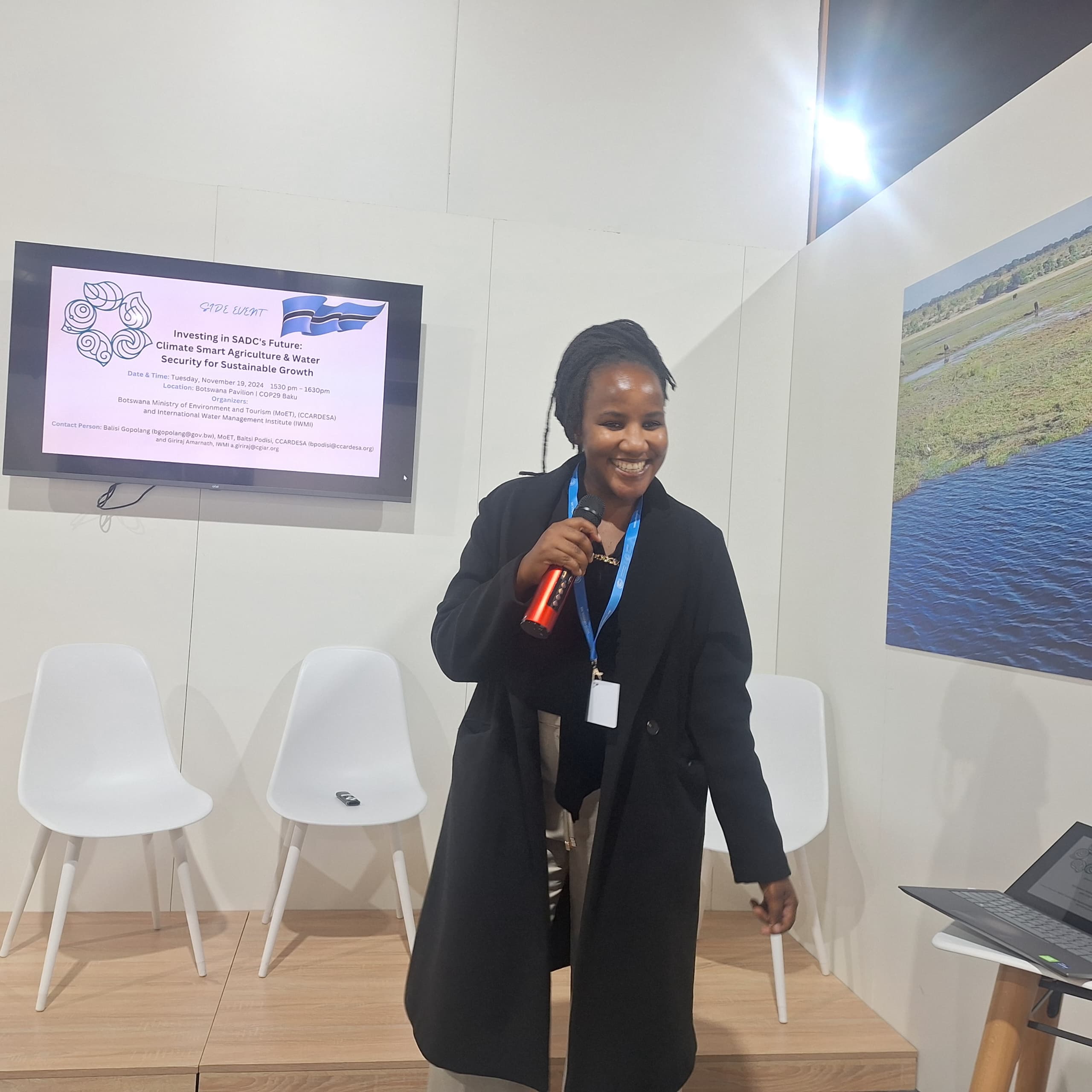
Dr. Relebohile Lepheana, the Vice Chairperson of the CCARDESA Board, followed with opening remarks emphasizing the importance of CSA and water security as foundational pillars for SADC’s sustainable development. She stressed the role of CCARDESA in supporting member states' uptake of sustainable climate-smart practices and water management practices.
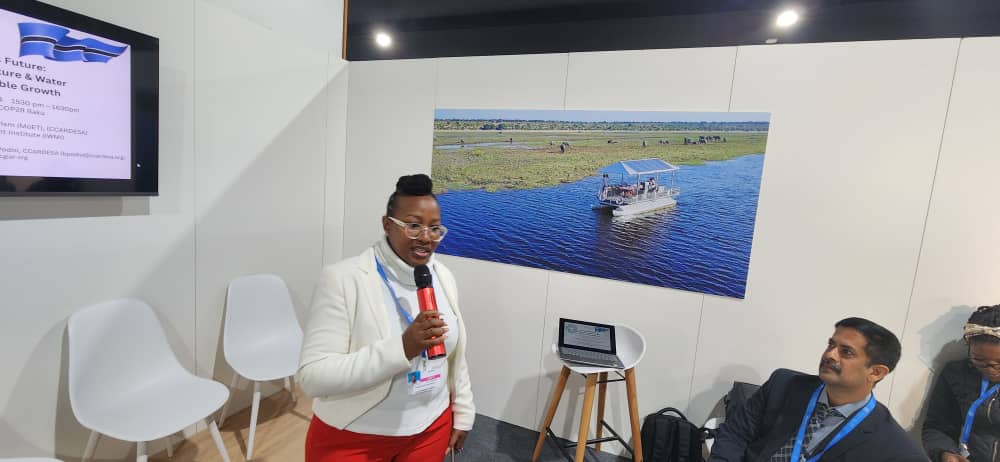
Dr. Giriraj Amarnath of the International Water Management Institute (IWMI) delivered a technical presentation highlighting successful CSA and water management projects within the SADC region, demonstrating actionable solutions for regional challenges. Dr. Amarnath stressed the importance of tailoring CSA solutions to the specific vulnerabilities of each SADC member state while maintaining a coherent regional approach. He advocated for localized vulnerability assessments, stakeholder engagement, and cross-border knowledge-sharing to align localized efforts with regional objectives.
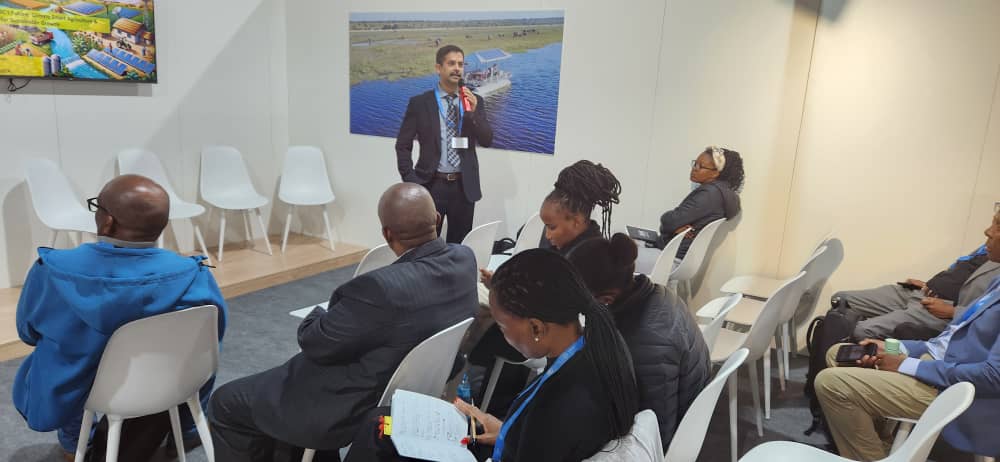
Dr. Amarnath also highlighted the private sector's crucial role in scaling CSA adoption and investing in climate-resilient agriculture. "Incentives such as blended finance, agricultural insurance, and green bonds can attract private-sector investment. Public-private partnerships are essential to connect agribusiness with smallholders, unlocking opportunities for scaling CSA solutions across the region," he explained.
A dynamic panel discussion featured CCARDESA’s Mrs. Bridget Kakuwa-Kasongamulilo, Information, Communication, and Knowledge Management Officer, alongside Eswatini’s Gcina Dlamini, Managing Director of Smiling Through Farms, focusing on CCARDESA-promoted Climate-Smart Agriculture (CSA) technologies across the region. The panel explored CCARDESA’s collaboration with other research and development actors to promote CSA technologies, highlighting examples of youth-led climate-smart farming initiatives in the SADC region, with Eswatini serving as a key case study. Additionally, the discussion addressed some of the significant challenges farmers face in adopting CSA practices, providing insights into the barriers and potential solutions for scaling up these sustainable approaches.
Mrs. Kasongamulilo highlighted CCARDESA’s efforts to promote Climate-Smart Agriculture (CSA) technologies and practices across the SADC region. She explained that the organization prioritizes identifying and developing "best-bet" CSA knowledge products tailored to the four critical value chains: rice, maize, sorghum, and livestock. CCARDESA has established robust knowledge-sharing platforms and capacity-building initiatives to help smallholder farmers adopt these solutions effectively. Furthermore, she underscored the importance of leveraging Indigenous knowledge and revisiting traditional CSA practices that have proven successful for communities in the past rather than imposing untested methods. “CCARDESA collaborates with regional and international R&D actors to ensure that CSA technologies are adapted to the specific needs of farmers, thereby empowering communities to build resilience and enhance productivity,” she noted.
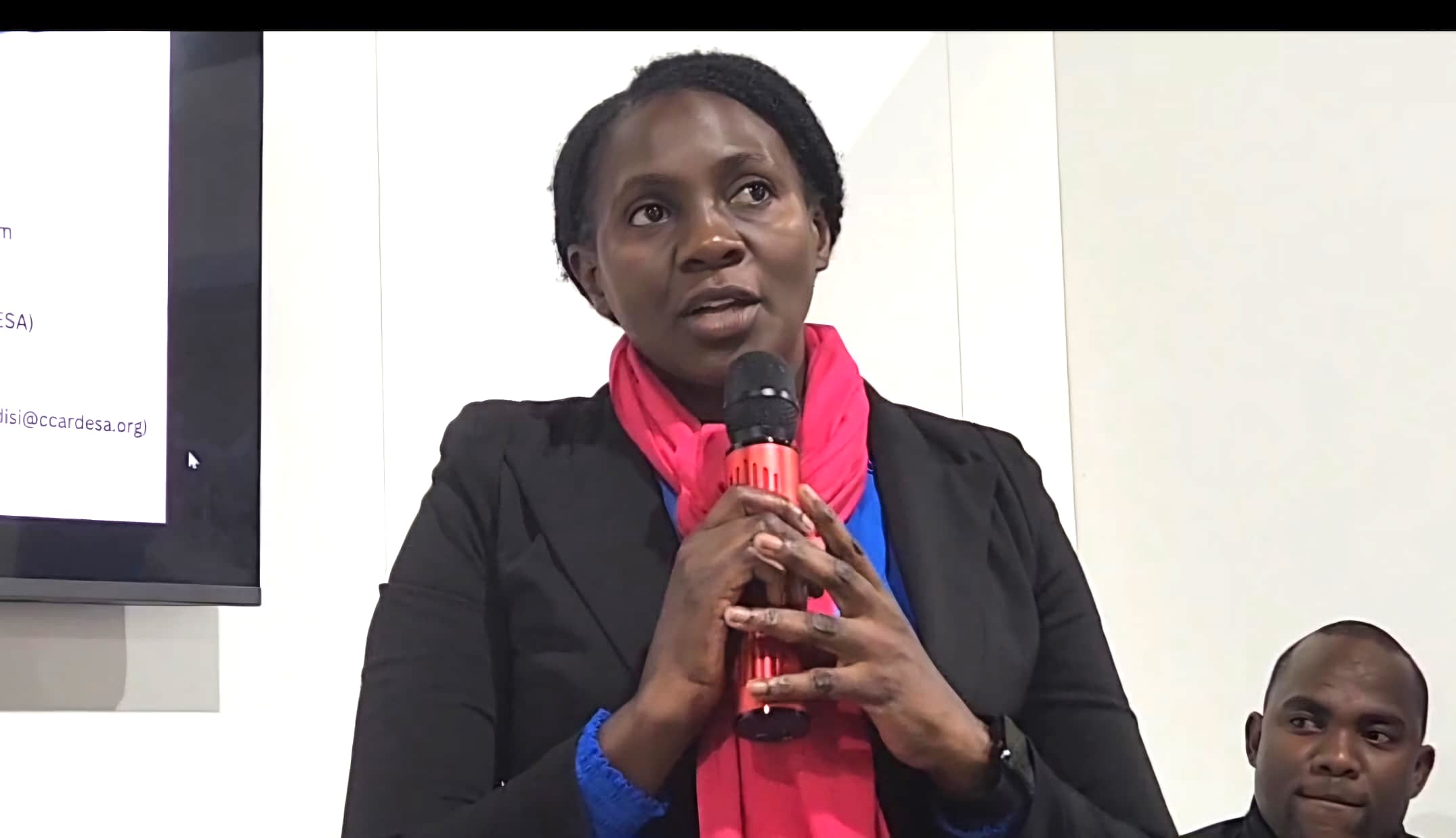
Mr. Gcina Dlamini, a young farmer from Eswatini, shared his experiences with youth-led climate-smart farming initiatives. He highlighted projects in Eswatini where young farmers employ precision agriculture technologies, grow drought-resistant crops and practice conservation agriculture to enhance sustainability.
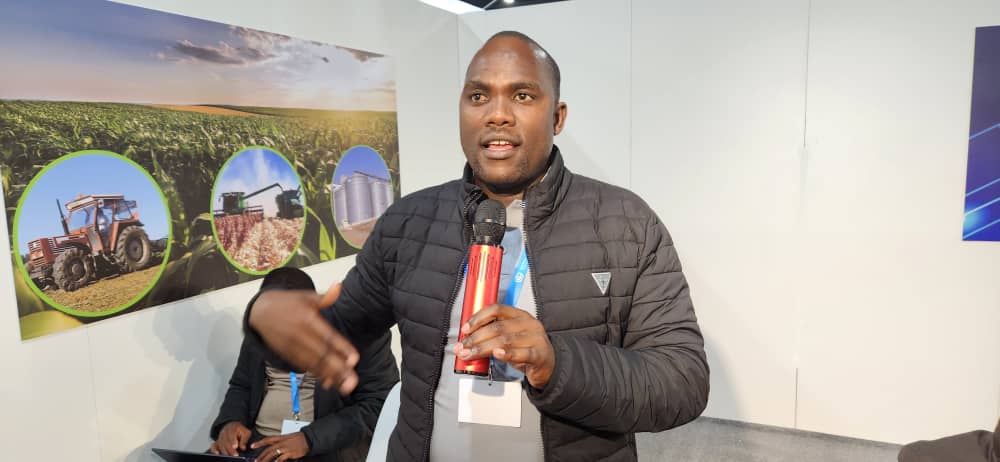
However, Dlamini pointed out significant challenges in adopting CSA practices, including limited financing, insufficient technical knowledge, and market constraints. "Addressing these barriers requires robust support systems, including favorable policies, private-sector partnerships, and targeted training programs to enable youth to lead in this space," he emphasized.
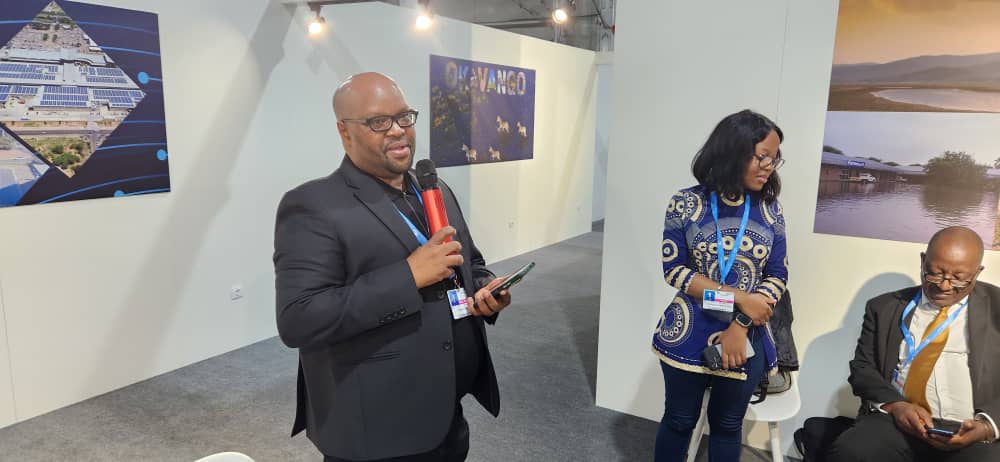
During the session, the CCARDESA Executive Director, Prof Cliff Dlamini sought clarification on whether all three dimensions of scaling—scaling out, scaling up, and scaling deep—were being adequately considered, noting that project implementers often overlook key aspects of these approaches.
Adding to the discussion, Mr. Sydney Simelane, Principal Secretary in the Ministry of Agriculture for the Kingdom of Eswatini, raised concerns about rural and small-scale farmers’ access to essential technologies such as irrigation and solar-powered irrigation, given their high costs. He emphasized the need for strategies to support these farmers in accessing sustainable irrigation solutions to enhance their productivity and resilience.
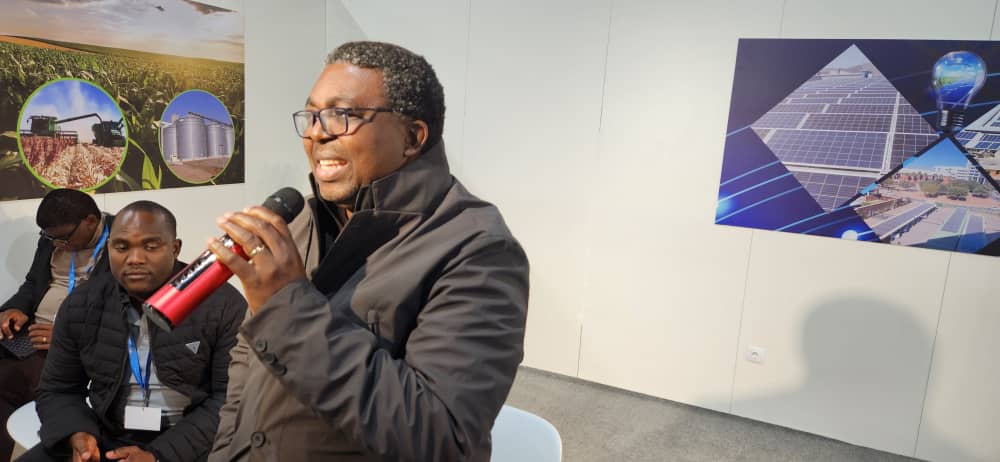
Ms. Chimbidzani Bratonozic from the Food and Agriculture Organization (FAO) in Botswana inquired about the specific support mechanisms in place to help farmers adopt sustainable Climate-Smart Agriculture (CSA) practices. She also commended the initiative by IWMI to host webinars, emphasizing their potential to foster further learning and collaboration among stakeholders.
The panelists and keynote speakers collectively underscored the importance of integrating CSA practices with water management strategies, promoting innovative financing mechanisms, and strengthening regional collaboration to tackle the effects of climate change. The event featured discussions on water-efficient technologies, drought-resistant crops, sustainable water management, and the role of the private sector in expanding climate-resilient agricultural value chains.
In his closing remarks, Mr. George G. Keotsene from MoET summarized the event’s key takeaways, calling for collaborative efforts to build climate resilience across SADC. He expressed gratitude to participants and stressed the need for continued partnerships and actionable solutions to secure the region’s future.
The side event served as a vital contribution to the COP29 agenda, highlighting the critical role of CSA and water security in achieving the Paris Agreement goals and fostering sustainable development in vulnerable regions.





